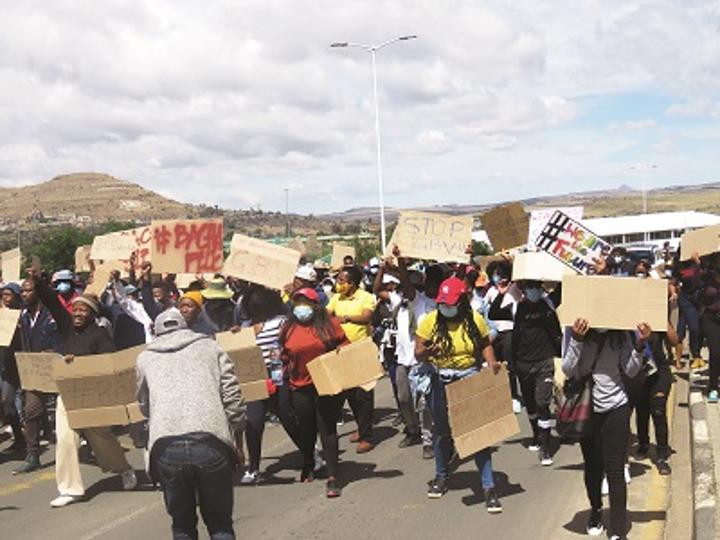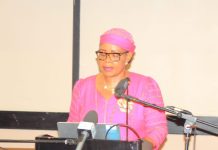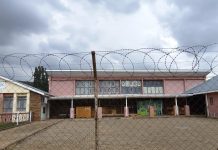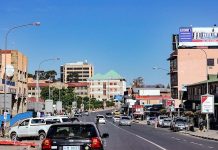Africa-Press – Lesotho. With the recent alarming spike in femicide reports, one cannot help but wonder where the country is leading and how safe women are at the hands of men.
Almost every week there are reports in various media outlets of women who have been brutally killed by their lovers. In May this year, Women in Sports Committee together with the Ministry of Gender, Youth, Sports and
Recreation (MGYSR) organized an awareness march against Gender Based Violence (GBV) after their member ‘Mathabo Lelimo of Sea Point Maseru was allegedly
murdered by her partner. Only in September, reports circulated that ’Mahlompho Matela of Ha Mabote Maseru is alleged to have died at the hands of her husband.
A 21 year old woman of Mphosong in Leribe, Libuseng Maqakachane was found dead in a veld at Ha Ramakakamela Leribe and the deceased’s body was discovered by herd boys who reported the matter.
The police confirmed. In an interview with Informative Newspaper, Assistant Police Spokesperson, Sub-Inspector ‘Mareabetsoe Mofoka said as much as the murder (inclusive of femicide) reports were high in
September, they do not yet have compiled final numbers for September. Sub-Inspector Mofoka also specified that in most femicide cases, physical force is common, it includes stabbing, beating, strangling and shooting and the
police are working tirelessly on investigations. Ministry of Gender, Youth, Sports and Recreation Gender-Based Violence Liaison Officer and a PhD Candidate
Mosiuoa Ramakoele, whose interests are in Media and Femicide, held that femicide is the terminal end of abuse. That violence starts taking slow momentum with small indicators such as verbal abuse and then grows into
physical abuse which later leads to loss of life. Ramakoele advocates for a behavioral and attitude change as he said men should be socialized to see women
as human beings and not punching bags. He also seized that the society, through its norms, culture and churches, must create a conducive environment for women
to leave abusive relationships and that potential abuse victims should be given enough information: spotting abuse at an early stage, where to report and that
leaving an abusive relationship alive is better than leaving it in a coffin. At the National level, Ramakoele apprehended that if passed, Gender and Development Bill will help
address issues of GBV and Domestic Violence Bill will help with the response for perpetrators. “The challenge is having policies and putting them into
practice (implementation). There should be a tracking system, national data collection for abuse patterns as currently the system produces and reproduces
toxic partners,” Ramakoele indicated. Ministry of Local Government and Chieftainship Focal Person on Gender issues and Gender Related Issues Community Advisor Malefetsane Nkhabu signposted that religion and indigenous
ways of dealing with issues perpetuate GBV. He whispered; “We are a nation that is still held up in GBV perpetuating norms and indigenous ways of intervening,
for example, a couple may have a misunderstanding and then intervention be of immediate family which in most cases take sides. We should push for a society
that talks with men not about men. Moreover, laws must be reviewed so that they address current issues. ” One of the Champions of Anti-Femicide Movement Lesotho (a movement against femicide by Basotho in Diaspora) ‘Manthatisi
Machepha revealed that as a movement, they are very disheartened by the current femicide cases in the country. Machepha said they are working on a multifaceted approach that includes different
working streams to tackle issues from mental health perspective up to law enforcement. “The main thing that is urgent is the review of bail regulations for murder cases.
The ease at which suspects are granted bail and the price (M500-1000) is ridiculous,” Machepha said. Their petition on ending femicide in Lesotho that has been circulating on social media platforms, has
thus far been signed by over 4000 Basotho: We Basotho in diaspora hereby call upon the Heads of Diplomatic Missions for Lesotho to engage the Government of
Lesotho on the following demands: “We want accountability, we want the Government of Lesotho through its various arms which include the Police Gender Unit, the Ministry of Gender [MGYSR], the prosecution,
magistrates and the courts handling cases relating to femicide, to account to the nation and publicize judgements handed down and court orders related to
femicide cases regularly on radio and in the media. We want the government to lead awareness with the intention to curb and ultimately eradicate incidences
of femicide through all available platforms that include radio, print media and social media. We want gender based violence (GBV) bill to be enacted urgently and the sentencing of anyone found
guilty of femicide prescribed in the bill to be increased. We want officers who have been accused of GBV to not handle GBV and femicide cases and the government to
respond to our demands by October 30th, outlining the measures that are being taken. We plead with the international organizations and communities to hold the government accountable
on taking measures to end femicide and GBV in Lesotho and report back the progress to the international community”. Member of Parliament (MP) Hon. ‘Matlhohonolofatso Tšepang Tšita-Mosena said Counter Domestic Violence
Bill is expected to be passed as consultations have been done around the country and the expectation is that before the end of this year, the Bill will
have been passed. Hon. Tšita-Mosena also signposted that the endorsing of the Bill will help in stopping some cultural norms that perpetuate abuse as these norms will be criminal offences.
According to a report on Sexual Violence Against Women in Lesotho which was conducted by the United States Agency for International Development (USAID) through MEASURE Evaluation Project
in collaboration with Tulane University, Sechaba Consultants and Lesotho CARE, on the nature and magnitude of sexual violence in Lesotho, as well as outcomes of
the Sexual Health and Rights Promotion (SHARP!) – a project that addresses sexual violence in Lesotho, findings are: Reporting of sexual violence is common: 61% of the sample reported having experienced sexual violence at some
point in their lives. Forty percent reported experiencing some form of coerced sex and 50% experienced sexual assault. Twenty-two percent (22%) of the sample reported being physically forced to have sexual intercourse
at some point in their lives. Local definitions of rape underestimate actual occurrence of sexual violence. The local definition of rape is sexual assault
by strangers upon virgins. Sexual assault by someone the woman knows and sexual assault upon a sexually experienced woman are not considered rape. A woman’s decision to
disclose an assault is dependent on the type of perpetrator; disclosure is more common if the perpetrator was a stranger. Community members are typically not
supportive of women who report having been sexually assaulted and often blame the woman for causing the assault; Few women who experienced sexual violence
sought out existing services; Many women choose not to report sexual violence to the police because they face harsh and accusatory questioning from the male officers.






